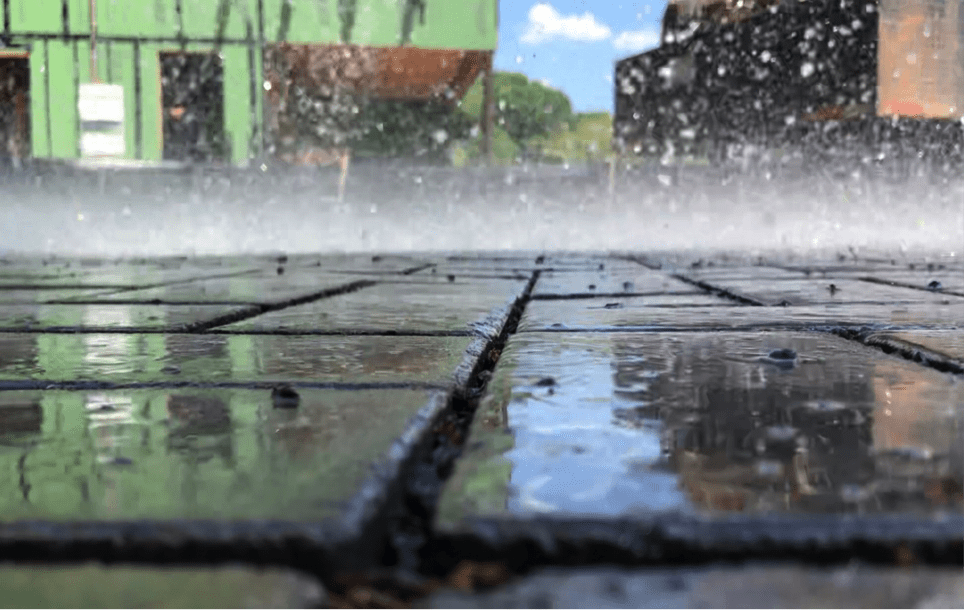The Roman Empire is known for its engineering marvels, including aqueducts, public baths, and monumental projects like the Colosseum. One of Rome’s most enduring legacies, however, is also one of its most humble: the paver, passed down through two millennia, and an important part of modern hardscaping. Just as science and experience have improved on other Roman innovations like concrete, the paver has undergone a renaissance of its own, seen in the permeable pavers offered by Unit Paving.
How Permeable Pavers Work
Traditional pavers are impermeable, which is to say they’re specifically designed to prevent the penetration of water. That leads to water — and anything picked up in the water, like oil, fertilizer, and a host of other pollutants — being carried to storm drains, where the whole toxic mixture ends up in our rivers and groundwater.
The alternative is Permeable Interlocking Concrete Pavers, also known as PICP. Instead of being a smooth and solid surface, permeable pavers are designed with a certain amount of porous surface area that absorbs the water. The paver, the substrate, and even the fine stone filler between pavers each contribute to filtering contaminants out of the water before it makes its way back to the soil and the water table.
Permeable pavers should not be confused with pervious pavers such as grass pave. Both are designed for the same purposes, but work by different means; pervious pavers which have a visibly porous look due to their use of a coarse aggregate and larger void areas. Permeable pavers use a different proportion of concrete to aggregate to the same end, but are virtually indistinguishable from other traditional pavers offered by Unit Paving and tend to be more user friendly as well as ADA compliant.
Why Permeable Pavers?
History reminds us that the more things change, the more they stay the same. Like ancient Rome, modern times find us trying to keep pace with a growing population in ways that don’t tax our natural resources.
Every modern convenience brings certain downsides, including water contamination from the fertilizers that help our crops grow, oil and fuel from our cars infiltrating groundwater, and massive rainwater runoff flooding streets and driveways. The design and mechanics of permeable pavers are an attempt to address these issues in a way that stays practical and functional.
Benefits of Permeable Pavers
PICP provides certain benefits when used in South Carolina paving projects. These pavers are sustainable. They contribute toward LEED NC-2009 and LID credits by capturing and treating the contaminant load of rainwater. They require less infrastructure (like stormwater retention ponds). Furthermore, they reduce pollution and the heat island effect.
Permeable Paver Applications
When you think of pavers, you may think of a driveway or walkway. However, when the right materials and installation are used, permeable pavers prove to be remarkably adaptable. Not only can they handle pedestrian traffic and parked cars, but they’re also suitable for shopping plazas, parks, and even roads that carry a high volume of vehicular traffic.
Permeable Pavers from Unit Paving
In addition to the choice of PICP, the choice of your paving contractor matters. Using Unit Paving comes with a number of built-in advantages, including our many years of experience serving the needs of businesses, homes, and municipalities in the Carolinas, our diverse range of projects that includes courtyards, driveways, and pool decks, a wide choice of materials, and our certifications (we are ICPI Certified Installers and Green Advantage Environmental hardscape installers). Contact us to consult on your project — no matter how large or small — today.

